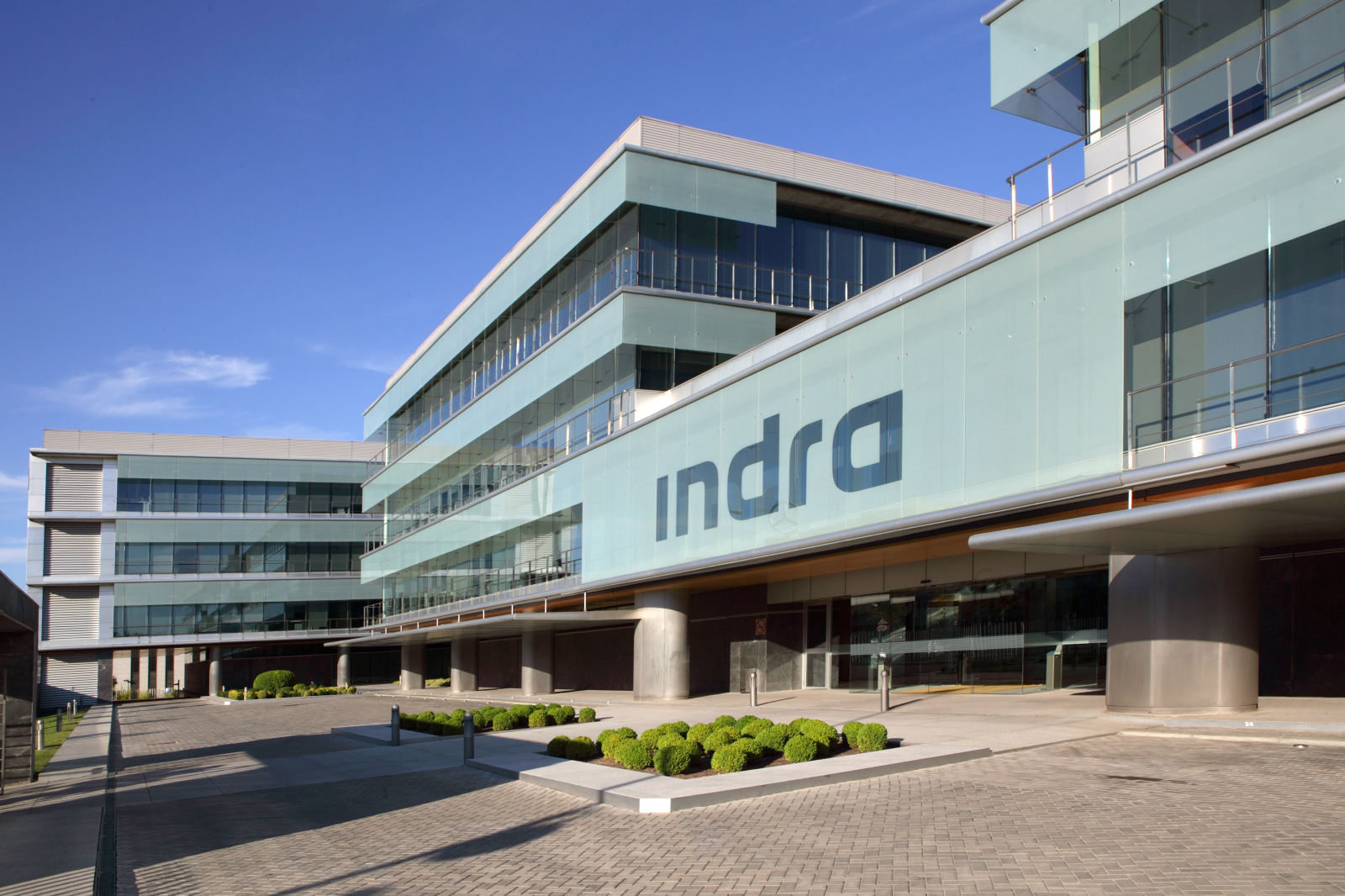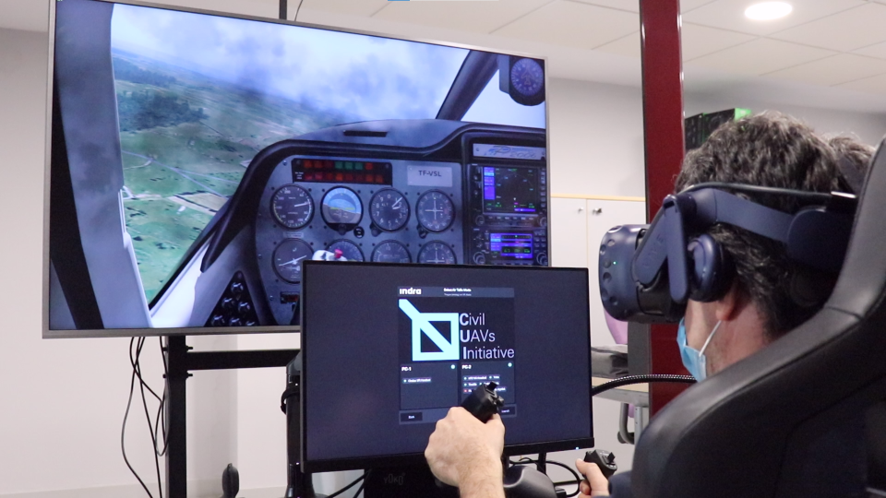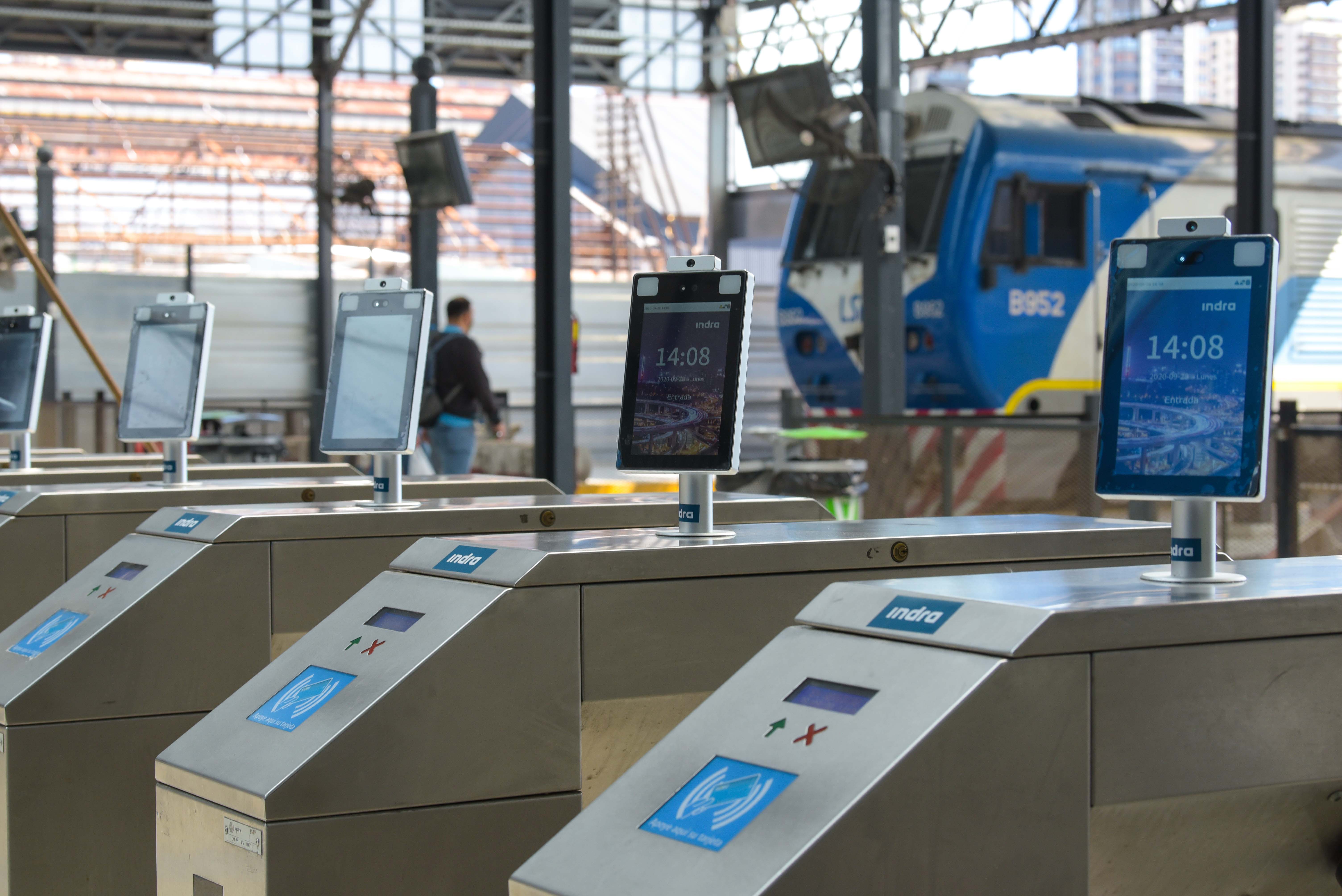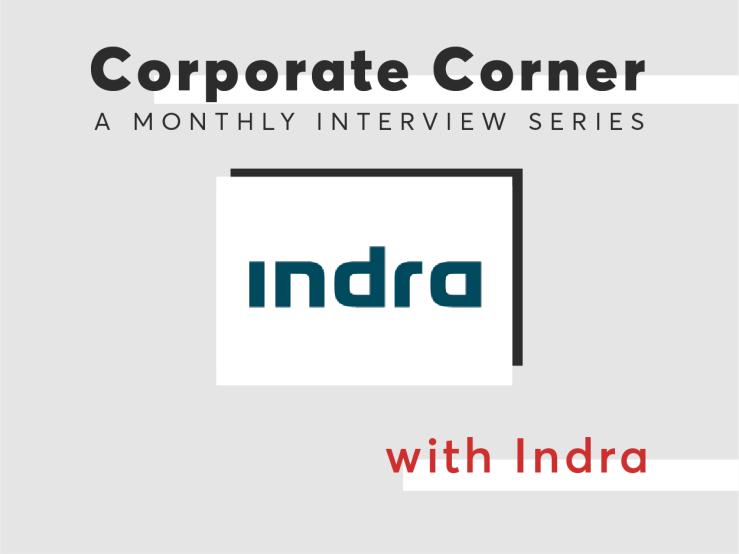The European Innovation Council (EIC) regularly hosts EIC Corporate Days, matchmaking events between Europe's largest corporates and EIC beneficiaries. In this new series, we will discover what makes these corporates tick, what is their approach to innovation and what are they looking for. In the light of the EIC Corporate Day with Indra we met with Manuel Ausaverri Ferrer, Head of Strategy & Innovation and Chief of staff at Indra and Laura Saralegui Gómez, open innovation manager at Indraventures.
On 6 & 7 July 2021, the European Innovation Council (EIC) in collaboration Indra, a world-leader in providing proprietary solutions in Transport and Defence markets, and a leading firm in Digital Transformation Consultancy and Information Technologies, brought together 24 EIC-beneficiaries.

-
Can you tell us more about your approach to (open) innovation?
Manuel: A few years ago, we opened our innovation model. Of course, we are a technology company involved in several sectors, including transportation, energy, financial services, defence, security etc. and our R&D intensity is high. Our business scope is quite wide and the pace of innovation is extremely fast. Therefore, Indra decided to build an ecosystem of start-ups, entrepreneurs, universities, researchers, and research centres to develop the our open innovation model. The reason of our success is based on the fact that we are trying to apply the best practices in the sector and that innovation is an integral part of product development teams. In other words, open innovation is very strategic for us, as we are accessing the market faster and with more complex development and at the same time, internally, it helps us to refine, evolve and improve the technological approaches that we offer.
Laura: We opened the EIC Corporate Day to the whole company so our employees could join the meeting. We received more than 300 requests to join the meeting, but we could not accept all of them. And this is exactly what Manuel was mentioning: we want each of our employees to be on the cutting edge of breakthrough technology so that they can suggest partnerships improve and complementing the complex products that we are developing.
-
Recently you teamed up with the EIC to co-host an EIC Corporate Day. Can you explain the motivations behind joining forces with the EIC ?
Laura : We are living in an ecosystem and EIC is the perfect partner in this regard. There are three main reasons to support this. The first one is the quality. All the participating start-ups were supported by the EIC. Startups, but also corporates, are aware about the rigorous and challenging process that they have to pass, and that they must support their proposal in breakthrough technologies, deep tech and game changing innovation. And this is precisely what Indra, a global technology company, is looking for when collaborating with startups. . Secondly, there is the volume. EIC has more than 6000 companies so “volume” is very strategic for us; because when opening a call to attract startups, we knew that we were going to be able to find startups answering to our challenges, even to the more narrow ones. Last but not least, it's the EIC Corporate Day itself. It has a long track record of accomplishment already and that was the reason we wanted to co-host this event with you. It’s a great opportunity to discover first, and then to meet and engage with startups in very quick one-to-one meetings. EIC supports all the organization process, which of course requires a big effort from the corporate too. So the result of the event is highly satisfactory for both parties, in terms of event and in terms of creating value.
Manuel: The number of companies that the EIC can bring to the table and the quality of interesting their proposals was fascinating. Indra, but also, I personally, were really impressed by the EIC Corporate Day. All in all, the EIC is a very interesting partner to have and we are looking forward to collaborating again.

-
What mindset and skills do you look for in companies you bring to your ecosystem?
Manuel: The most essential element, is to find a common ground and to speak the “same language”. In a big company the decision process normally involves many people at various stages, and it is necessary to follow some procedures. That requires lots of flexibility from both parties. As a technological company being lean and flexible is an important factor and we learned that from experience. We have failed many times, but we have also succeeded, and our takeaway from this is that the individual, the entrepreneur, is key. There are millions of ideas everywhere and it is very difficult to have a 100% original one, so for us the idea is not the most important part. Any original idea will evolve, change or be re-shaped, but in order for this to be achieved we need people on the other side of the table that are able to evolve from the initial place. Some entrepreneurs are completely committed to their original idea, and they are in love with their project, but this mindset makes it difficult for us to work with them. The real business success will require evolution, adaptation and sometimes have significant change from the original idea. Is necessary for the entrepreneurs to be hard workers, creative with strategic thinking and flexibility. It’s a transformation for them from a “lonely rider entrepreneur” to joining or partnering a big corporate.
Laura: Forward thinkers are key in this process. A long-term vision to fit their project/ solution to Indra, sense of collaboration and partnership will help them be a part of our ecosystem.
-
What type of partnerships are you looking for with startups? (Joint venture, acquisitions, joint R&D etc
Manuel: What we have discovered these years is that Indra cannot have a “closed model”, meaning one model to fit all the needs, because that would leave out the 99% of the companies. Therefore, we offer a cooperation model, which is more specialised in the individuality of each collaboration. Indra as a company has quite clear objectives defined in terms of strategy and business, but we are interested in people with real motivation who want to make their idea successful. We can help companies who are looking for someone to help them escalate their idea, to make their idea real or to bring the idea to the world. Some others are struggling to find clients, or they need technological resources in terms of programming hours or services or hardware, Indra can help them as well. We are present in 140 countries, and we have a privileged relationship with governments and big clients. So, in that sense we can be a perfect partner for these small companies. I have to say that money is the least important motivator, because it's very easy to find cheap financing. Indra is not the only or even the best place to find a big amount of money, but it can be the best place where you can find a good partner to complement your capacities. Is important to mention that for a big company like Indra, is not easy to have customised operation solutions for almost every idea, but we are being flexible and open-minded.

-
Any advice/tips for companies that want to work with you?
Laura: Flexibility and open mind is key for the startups we work with. Flexibility to twist a little bit their initial idea, to find an agreement, or to define the potential collaboration with a big corporate. In many cases, we close deals with different use cases that the initially suggested by the startup, or the collaboration model is tailor-made and different than the initial thought. Nevertheless, the ultimate goal is always to find the best match between the startup and Indra. The second tip is patience. We must secure internal processes before firmly engaging startups and we do not work on the same speed, definitely. We do our best to lean processes and no matter how fast we try to run, that we are slower than startups. But our speed has nothing to do with our interest in the collaboration with the startup and this is something we have to explain recurrently so that the relationship is not damaged. Indeed, effective communication between the parties is key to reach agreements and ensuring that the projects run smoothly.

DISCLAIMER: This information is provided in the interest of knowledge sharing and should not be interpreted as the official view of the European Commission, or any other organisation.

